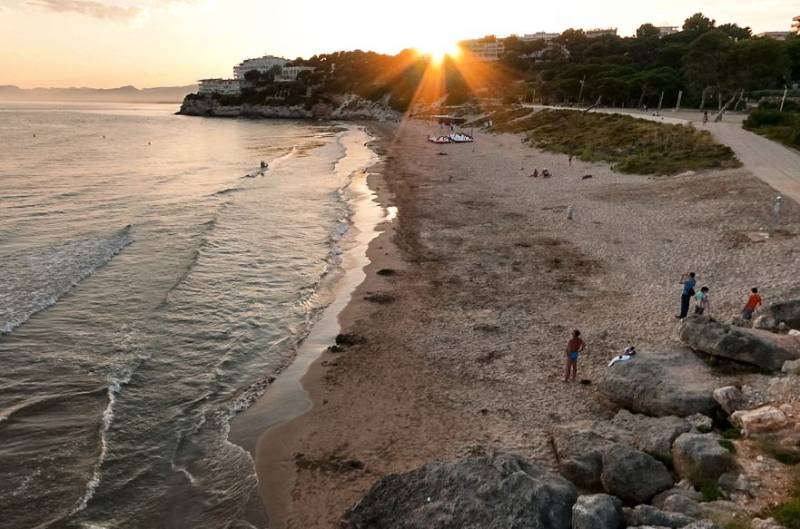- Region
- Vega baja
- Marina Alta
- Marina Baixa
- Alicante
- Baix Vinalopo
- Alto & Mitja Vinalopo
-
ALL TOWNS
- ALICANTE TOWNS
- Albatera
- Alfaz Del Pi
- Alicante City
- Alcoy
- Almoradi
- Benitatxell
- Bigastro
- Benferri
- Benidorm
- Calosa de Segura
- Calpe
- Catral
- Costa Blanca
- Cox
- Daya Vieja
- Denia
- Elche
- Elda
- Granja de Rocamora
- Guardamar del Segura
- Jacarilla
- Los Montesinos
- Orihuela
- Pedreguer
- Pilar de Horadada
- Playa Flamenca
- Quesada
- Rafal
- Redovan
- Rojales
- San Isidro
- Torrevieja
- Comunidad Valenciana
Date Published: 02/06/2025
New Covid variant triggers surge in hospitalisations
This new strain of Omicron has already been detected in Spain

It’s now more than five years since the coronavirus pandemic first brought the entire world to a grinding halt. Since then, the disease has mutated dozens of times and while Covid is very much in the background of our lives now, a new variant is causing scientists some concern.
The World Health Organisation (WHO) has classified the new coronavirus variant as "under surveillance" following an increase in infections and hospitalizations across the globe.
First identified on January 22, 2025, NB.1.8.1 is a derivative of the Omicron strain. This variant is causing concern for health experts after being identified in several countries, including tourist destinations such as Egypt, Thailand and the Maldives.
The WHO warned in a recent report that the new strain is responsible for more than 10% of all infections and is already the dominant strain in Hong Kong and China.
The US Centres for Disease Control and Prevention (CDC) has also identified cases in several states, including New York, California, Arizona, Ohio, Washington and Rhode Island.
According to data from the Global Initiative on Sharing All Influenza Data (GISAID), the presence of NB.1.8.1 in Spain has been confirmed, but the Spanish health authorities have not released detailed information regarding the specific regions or cities affected.
Despite stating that the variant is currently being monitored, the WHO indicates in its report that the current risk to the population is considered low and that approved vaccines are expected to remain effective against this variant, both in symptomatic and severe cases.
The WHO says that despite the increase in cases and hospitalisations, there is currently no evidence that this variant causes more severe illness than other circulating variants.
Although the NB.1.8.1 strain has been detected in holiday destinations, the WHO insists that no travel or trade restrictions are necessary at this time.
The organisation urges countries to remain vigilant and adjust their responses as needed, but does not recommend closing borders or limiting travel.
"WHO recommends that countries remain vigilant, adapt to evolving epidemiological trends, and leverage Covid-19 management strategies to strengthen systems against all respiratory disease threats. Member States should continue to offer Covid-19 vaccines in accordance with WHO recommendations," the agency's report states.
CDC health experts say symptoms can vary depending on the variant, but are likely similar to typical coronavirus symptoms: fever or chills, cough, shortness of breath, sore throat, stuffy or runny nose, new loss of taste or smell, fatigue, muscle or body aches, headache, nausea or vomiting and diarrhoea.
This week, Lara Herrero, associate professor and research leader in Virology and Infectious Diseases at Griffith University, said that thanks to multiple mutations, the new strain could infect cells more efficiently than previous strains.
Professor Herrero explains: "It's possible that a person infected with NB.1.8.1 may be more likely to transmit the virus to someone else, compared to previous variants."
"The evidence so far suggests that NB.1.8.1 may spread more easily and partially evade immunity derived from previous infections or vaccination. These factors could explain its increase in sequencing data," he concludes.
In other news: Plague of giant moths invades Spain
Image: Pexels
staff.inc.ali
Loading
Sign up for the Spanish News Today Editors Roundup Weekly Bulletin and get an email with all the week’s news straight to your inbox
Special offer: Subscribe now for 25% off (36.95 euros for 48 Bulletins)
OR
you can sign up to our FREE weekly roundup!
Read some of our recent bulletins:
Discount Special Offer subscription:
36.95€ for 48 Editor’s Weekly News Roundup bulletins!
Please CLICK THE BUTTON to subscribe.
(List price 3 months 12 Bulletins)
Read more stories from around Spain:
Contact Murcia Today: Editorial 000 000 000 /
Office 000 000 000



























